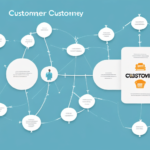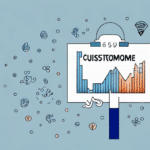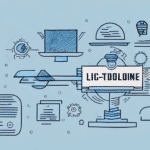Understanding the Importance of Customer Retention
Customer retention is a critical component for the sustained growth and success of any business. Retaining existing customers is not only more cost-effective than acquiring new ones, but it also fosters loyalty, encourages repeat business, and generates positive word-of-mouth referrals. According to a Forbes report, increasing customer retention rates by just 5% can lead to a profit increase of 25% to 95%.
Knowing Your Target Audience
Identifying Customer Needs and Preferences
To effectively retain customers, it's essential to understand their needs, preferences, and pain points. Conducting surveys, analyzing purchasing behavior, and gathering feedback can provide valuable insights. Tools like SurveyMonkey and Qualtrics can help in collecting and analyzing customer data.
Segmenting Your Audience
Segmentation allows businesses to tailor their marketing and retention strategies to different customer groups. By categorizing customers based on demographics, behavior, or purchasing history, companies can deliver more personalized and relevant experiences. This approach not only enhances customer satisfaction but also increases the likelihood of retention.
Strategies to Enhance Customer Loyalty
Providing Exceptional Customer Service
Outstanding customer service is a cornerstone of customer loyalty. Quick response times, knowledgeable support staff, and proactive problem-solving can significantly enhance the customer experience. Implementing a robust Customer Relationship Management (CRM) system can help streamline support processes and improve service quality.
Implementing Loyalty Programs
Loyalty programs reward customers for their repeat business and encourage ongoing engagement. Effective programs offer tangible benefits such as discounts, exclusive access to products, or points that can be redeemed for rewards. According to a study by Bain & Company, loyalty programs can increase customer retention rates by up to 5%.
Personalizing Customer Experiences
Personalization involves tailoring interactions and offerings to individual customer preferences. Utilizing customer data to customize emails, product recommendations, and marketing messages can create a more engaging and relevant experience. Tools like HubSpot CRM and Marketo enable businesses to deliver personalized content effectively.
Developing an Effective Customer Retention Strategy
Aligning with Business Goals
A successful customer retention strategy should align with the overall business objectives. This alignment ensures that retention efforts support broader goals such as revenue growth, market expansion, and brand positioning. Clearly defining retention goals and integrating them into the business strategy is essential for cohesive and effective implementation.
Mapping the Customer Journey
Understanding the customer journey—from initial awareness to post-purchase interactions—helps identify key touchpoints where retention efforts can be most effective. By mapping out each stage, businesses can implement targeted strategies to address potential drop-off points and enhance the overall customer experience.
Leveraging Technology for Customer Retention
Utilizing CRM Systems
CRM systems are essential for managing customer relationships and tracking interactions. Platforms like Salesforce and HubSpot offer comprehensive tools for customer data management, enabling businesses to personalize communication and anticipate customer needs effectively.
Implementing Data Analytics
Data analytics provides deep insights into customer behavior and preferences. By analyzing data from various sources, businesses can identify trends, predict future behavior, and make informed decisions to enhance retention strategies. Tools such as Tableau and Microsoft Power BI facilitate advanced data analytics and visualization.
Measuring and Improving Retention Efforts
Tracking Key Metrics
Measuring the effectiveness of retention strategies involves tracking key performance indicators (KPIs) such as customer churn rate, customer lifetime value (CLV), and Net Promoter Score (NPS). These metrics provide insights into customer satisfaction and loyalty, helping businesses identify areas for improvement.
Continuous Improvement
A continuous improvement approach ensures that retention strategies remain effective and adapt to changing customer needs. Regularly reviewing performance data, soliciting customer feedback, and staying informed about industry trends are crucial for maintaining and enhancing retention efforts.
Building a Customer-Centric Culture
Engaging and Training Your Team
A dedicated and knowledgeable team is vital for delivering exceptional customer experiences. Investing in regular training and fostering a customer-centric mindset among employees can significantly impact retention rates. Encouraging teamwork and empowering staff to address customer needs proactively can lead to higher satisfaction and loyalty.
Fostering Emotional Intelligence
Emotional intelligence in customer interactions helps build stronger, more meaningful relationships. Skills such as empathy, active listening, and effective communication enable businesses to understand and respond to customer emotions, enhancing the overall experience and fostering loyalty.
Enhancing Customer Retention Through Communication and Value
Consistent Communication
Maintaining regular and meaningful communication with customers keeps them engaged and informed. Whether through email newsletters, social media updates, or personalized messages, consistent communication helps build trust and reinforces the customer relationship.
Providing Additional Value
Offering value beyond products and services can differentiate a business from its competitors. Providing educational content, exclusive resources, or community engagement opportunities can enhance the customer experience and encourage long-term loyalty.
By implementing these strategies and continuously refining your approach, your business can achieve its customer retention goals, ensuring long-term success and a loyal customer base.




















